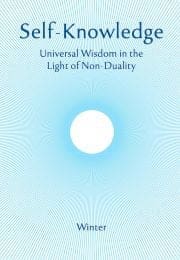Light from the Upanishads
Let us explore some of the ideas that are transmitted to us through these ancient, yet modern, sources of wisdom, the Upanishads. In their written form they are ancient, dating back to the millennium before the common era, but the teachings could be much older, having been passed on by word of mouth and memorised. The Upanishads are also modern in their message, and we can point to three aspects of their relevance to us today.
Firstly, the Upanishads are expressions of our search for knowledge—absolute knowledge which satisfies forever our deep need to know—to know such things as the nature of the universe, the meaning and purpose of life, and how we can secure a happiness that is not challenged by fate or death.
Secondly, in the Upanishads we find methods whereby we can pursue this quest for knowledge. It is by cultivating the qualities that aid the inner enquiry. The teachings make it clear that our mind is not only useful when it is active, but much more so when it is peaceful. A tranquil mind brings deeper understanding, particularly about ourselves: what we really are when everything superficial and temporary is set aside and we confront the question: ‘What am I in essence and in truth?’ In this context of inner investigation, the Upanishads show us how to bring our mind to peace, and why it is worthwhile to do so. An ancient verse tells us: ‘That state of the mind when it is made perfectly peaceful—that is the inner condition truly worth investigating.’
A third feature of the Upanishads which fits in with our modern outlook is their universality. Their findings apply to every human being, transcending differences of age, gender, nationality, creed, and so on. It is true that the Upanishads deal with sacred matters, but their ‘god’ is not the god of any particular religion. It is ultimate reality itself—that which is at the core of our experience of the universe and of our own inner being. The knowledge they transmit is Self-knowledge. The method they expound centres on Self-realisation. And their essential message to everyone is: ‘That ultimate reality, which has brought the universe into manifestation, is not different from your own true Self.’
What, then, is meant by ‘ultimate reality’ and how can such a seemingly abstract principle be relevant to our quest for happiness?
In the Upanishads ultimate reality does not refer to the world that registers on our mind through our senses. Both the world and our mind are changing every moment, and what is ever-changing cannot be called real in the deepest sense. But is there anything constant and enduring that the process of change cannot reach? Yes—we will discover such a principle if we turn within and examine more closely our own inner experience. This does not mean giving our attention to the contents of our thoughts. The methods of inner reflection taught in the Upanishads awaken our awareness of the inner light that reveals and accompanies the thinking process but which is not itself a thought. What is this inner light? It is the light of consciousness under which, so to say, thought is revealed, before which the thoughts appear and disappear. This inner light never alters, whether thought is present or not, and it is the clue to the nature of ultimate reality. For the Upanishads guide us in an inner enquiry that will lead to the revelation that the consciousness in the mind is not separate from Consciousness Absolute.
Subscribe or enrol for free guest access to read all of this article and Self-Knowledge online.
Already subscribed or enrolled? Log in:


